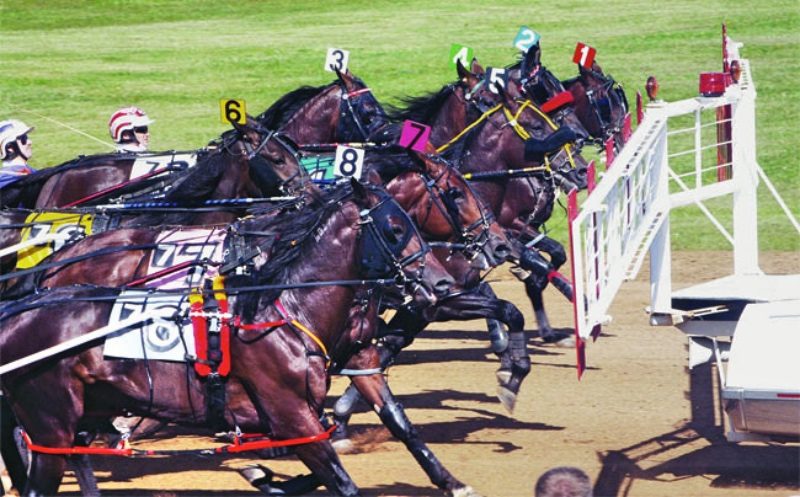Fresh off of its opposition to legislation that aims to prevent horse racing fatalities by creating anti-doping standards, a harness racing organization is raising questions about its constitutionality.
The Horseracing Integrity and Safety Act (HISA) has “several serious constitutional flaws,” according to Russell Williams, president of the United States Trotting Association (USTA), citing research by Gibson Dunn. The law firm successfully persuaded the U.S. Supreme Court to strike down a federal law prohibiting states from permitting and regulating sports betting.
“HISA purports to create a national, uniform program regulating medication in horse racing,” Williams says. “Only Thoroughbreds are mentioned in the bill, but it contains language providing for Standardbreds to inevitably be swept in.”
HISA, which has moved to the full House for a vote, aims to regulate the anti-doping standards by creating an oversight organization called the Horseracing Integrity and Safety Authority. The legislation is a federal response to a series of doping scandals and equine racetrack fatalities. An identical version has been introduced in the Senate.
The USTA cites several “constitutional flaws” with the legislation, including conflicts with the non-delegation doctrine, due process clause and anti-commandeering principle.
• Non-delegation doctrine. Congress cannot give private entities regulatory authority; however, HISA does so, according to USTA.
“To describe a few, the bill delegates to the Authority the power to determine the identity of racing participants to be regulated, to commence actions in federal court to enforce its regulatory activity, and to issue subpoenas and carry out searches and seizures,” he says. “These are public functions historically carried out by public agencies. If this kind of thing were legal, our entire lives might now be regulated by private, ‘self-regulatory’ corporations.”
• Due process clause. This provision “prohibits an economically self-interested private sector actor” from regulating private parties.
“The (HISA) governing body and standing committees supporting the Authority’s activities would have bare majorities made up of disinterested persons,” Williams says. “The rest would be representatives of ‘equine constituencies’ exerting regulatory power over other equine constituencies throughout the sport. Moreover, the Authority’s initial funding is designed to come from loans (which racing participants would have to repay), creating an incentive to act in accordance with the wishes of lenders.”
• Anti-commandeering principle. The U.S. Supreme Court has held that Congress “may not issue direct orders to the governments of the States.” In addition, it “may not command the States’ officers, or those of their political subdivisions, to administer or enforce a federal regulatory program.” The USTA alleges that the HISA violates this principle.
Gibson Dunn and the USTA predict that if the bill is passed into law, it will face a challenge in the courts.
“As the [Gibson Dunn] white paper concludes, ‘The constitutional concerns raised by HISA are substantial and pervasive,’” Williams says. “’Those concerns embrace the structure and powers of the regulatory body at the heart of the bill and extend even to the bill’s more peripheral provisions. We predict that enactment would lead to extensive litigation and the possible invalidation of the statute.’”
Learn More
Why Equine Bones Break and Tendons Rupture
Understanding anatomy and physics can help prevent severe injuries.








Post a comment
Report Abusive Comment